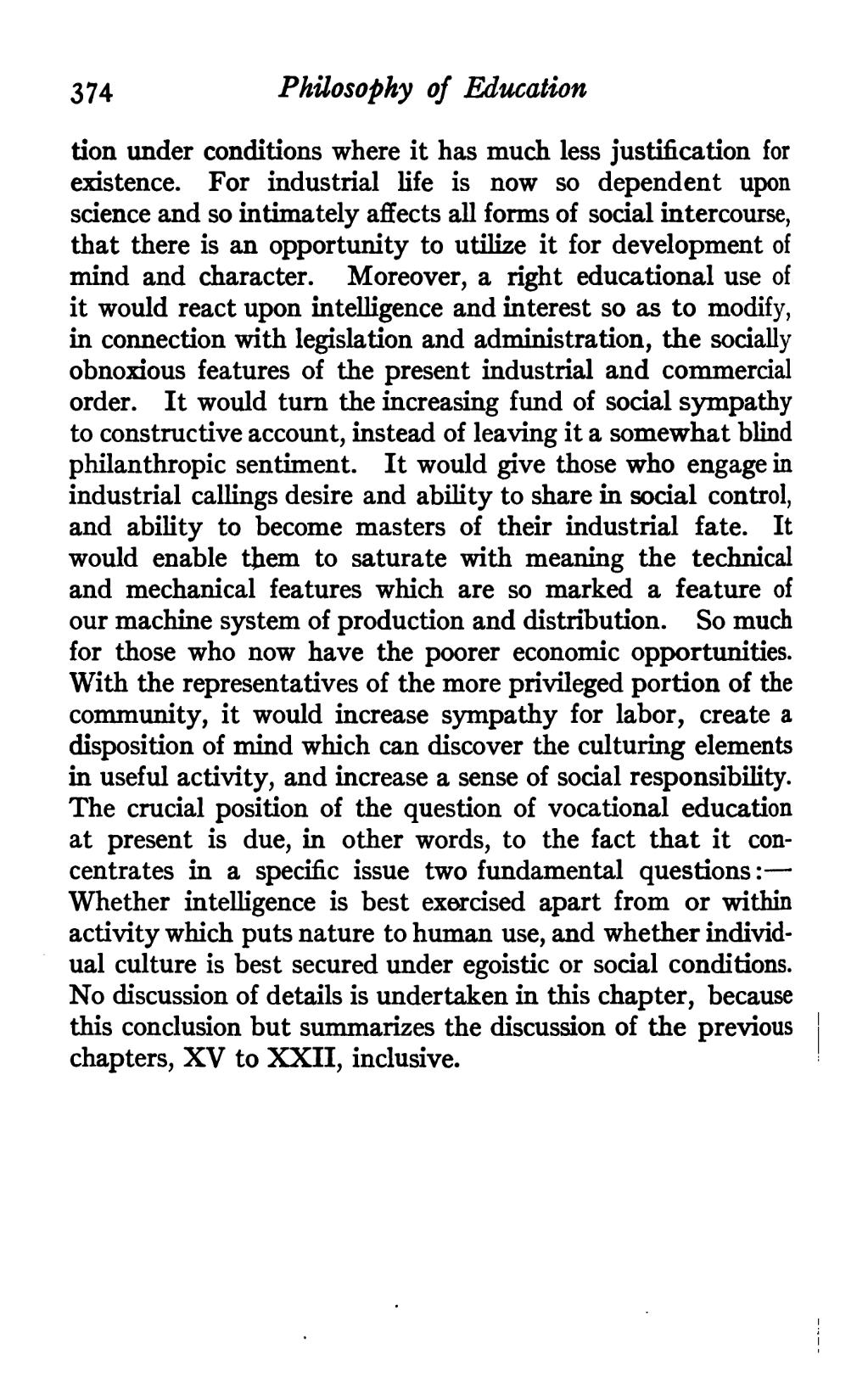tion under conditions where it has much less justification for existence. For industrial life is now so dependent upon science and so intimately affects all forms of social intercourse, that there is an opportunity to utilize it for development of mind and character. Moreover, a right educational use of it would react upon intelligence and interest so as to modify, in connection with legislation and administration, the socially obnoxious features of the present industrial and commercial order. It would turn the increasing fund of social sympathy to constructive account, instead of leaving it a somewhat blind philanthropic sentiment. It would give those who engage in industrial callings desire and ability to share in social control, and ability to become masters of their industrial fate. It would enable them to saturate with meaning the technical and mechanical features which are so marked a feature of our machine system of production and distribution. So much for those who now have the poorer economic opportunities. With the representatives of the more privileged portion of the community, it would increase sympathy for labor, create a disposition of mind which can discover the culturing elements in useful activity, and increase a sense of social responsibility. The crucial position of the question of vocational education at present is due, in other words, to the fact that it concentrates in a specific issue two fundamental questions:—Whether intelligence is best exercised apart from or within activity which puts nature to human use, and whether individual culture is best secured under egoistic or social conditions. No discussion of details is undertaken in this chapter, because this conclusion but summarizes the discussion of the previous chapters, XV to XXII, inclusive.
Page:Democracy and Education.djvu/393
This page has been validated.
374
Philosophy of Education
